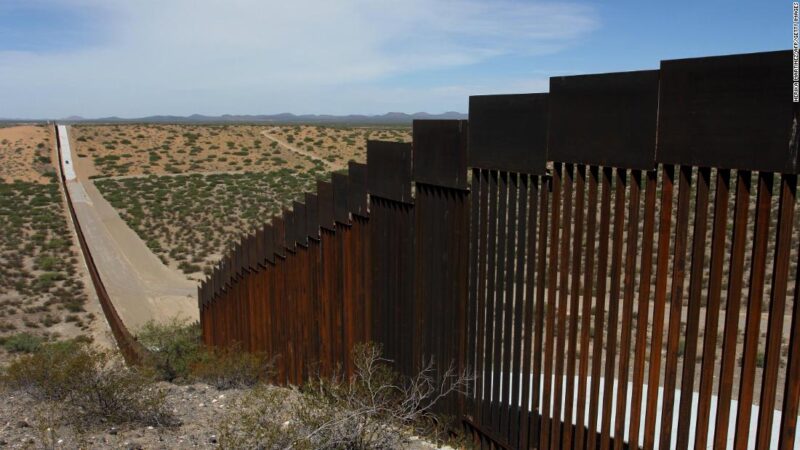Federal Judge Blocks Texas Law
A federal judge has blocked a Texas law that gave state law enforcement officers expanded powers to arrest people who illegally cross the southern border.
The ruling by U.S. District Judge David Ezra comes just days before the law was scheduled to go into effect. The law, known as Senate Bill 4, made crossing into the U.S. through Texas a state crime. This decision is expected to draw fierce criticism from both sides of the political aisle, as the issue of illegal immigration remains a hot topic in the country.
Judge Ezra, an appointee of President Ronald Reagan, granted a preliminary injunction on the basis that states do not have the authority to exercise immigration enforcement powers, except as authorized by the federal government. In his ruling, Ezra wrote that the Texas law conflicts with the Constitution and poses a threat to the U.S.’s foreign relations and treaty obligations. This means that the law will be put on hold while the legal battle between Texas and the Biden administration continues.
The controversial law, signed by Republican Governor Gregg Abbott, granted state law enforcement officers the power to arrest and jail individuals who crossed into the U.S. illegally. It also gave state judges the authority to order deportations, which sparked concern among immigrant advocacy groups. The Biden administration has argued that this law interferes with federal immigration law. The governor’s office has yet to comment on the ruling.
Texas has the constitutional right to defend itself because of President Biden’s ongoing failure to fulfill his duty.
We will not back down in our fight to protect Texas.
This case will ultimately be decided by the U.S. Supreme Court. pic.twitter.com/o7ugwxViMU
— Greg Abbott (@GregAbbott_TX) February 29, 2024
The ACLU brought a lawsuit against the state of Texas in December, arguing that the law is discriminatory and will unfairly target minorities. The U.S. Department of Justice later filed a separate lawsuit, alleging that the law was in violation of the federal government’s constitutional authority over immigration matters. The two lawsuits were later combined and have since been the subject of ongoing legal battles.
During Thursday’s hearing, a lawyer for the state of Texas argued that the influx of illegal immigrants constitutes an invasion, citing Article I, Section 10 of the U.S. Constitution, which grants states the right to defend themselves in the event of an invasion. However, Judge Ezra rejected this argument, stating that there was no evidence to suggest that Texas was under any sort of military invasion.
In a post on X, Governor Abbott expressed his disappointment in the ruling, adding that the state would continue to fight to enforce the law. He also reiterated his belief that Texas has the constitutional authority to secure its border, especially with the Biden administration’s current approach to immigration policy. Governor Abbott said that he was not surprised by the ruling and is confident that the case will ultimately be decided by the U.S. Supreme Court.
This ruling is likely to reignite the debate over immigration policy in the U.S. as the Biden administration continues to grapple with the crisis at the southern border. Republicans have criticized President Biden’s approach to illegal immigration, claiming that his policies are to blame for the surge in border crossings. On the other hand, Democrats have argued that the previous administration’s harsh immigration policies are the root of the problem, and that the current influx is a result of years of neglect and inhumane treatment of immigrants.
As this legal battle continues, it remains to be seen how this decision will impact the ongoing crisis at the border. Immigration advocates and human rights groups are likely to view the ruling as a win, as it will prevent the enforcement of a law that they believe will lead to the unfair treatment of immigrants. On the other hand, those who support stricter immigration policies may see this as a setback in the fight to secure the border and control the influx of illegal crossings. With both sides firmly entrenched in their positions, it is unclear how this issue will ultimately be resolved.

